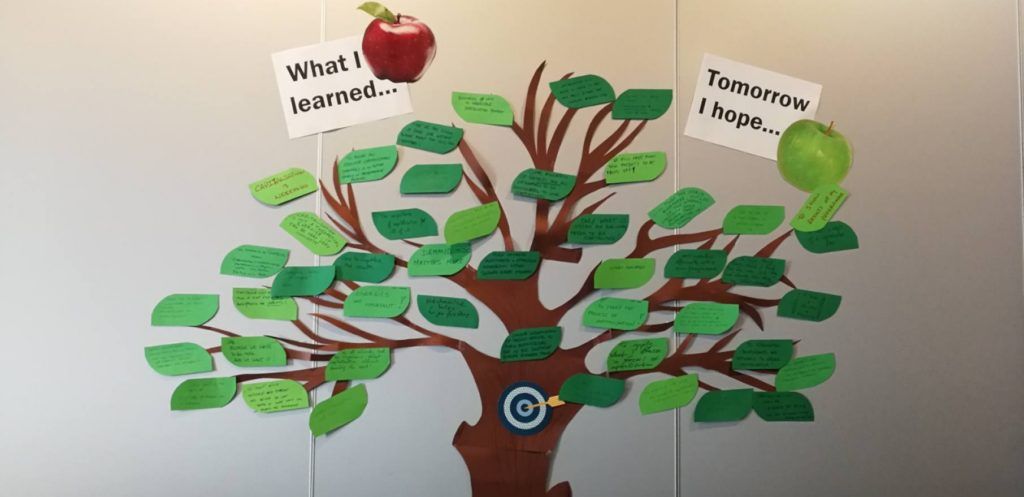Capitalisation in ENI CBC Programmes
Capitalisation. A term that we often hear in the context of European programmes. Yet there is no one definition for it and different practices hide behind this word. But one thing is certain: the trend to capitalise is an absolute priority for both the European Commission and programmes during the period 2014-2020. Let’s see where we stand on this topic and go through some basic ideas on the topic. This is one way to start!
What is capitalisation?
There seems to be a common understanding that capitalisation is about gathering and building upon results of programmes / projects. Following a thematic approach, the first step is to bring together the results obtained by projects in the same field: the environment, economic development, etc. Then, it is a matter of finding how these results can be used and transferred to other programmes/projects. Ultimately, the aim is to see how certain results could be multiplied, so that their impact is further increased. This last step is the most ambitious of all, and aims at influencing the policy level, be it on national or regional/local level, bringing a long-term change that projects alone cannot achieve.
What has the ENPI CBC community done so far?
In the ENPI CBC period, only a few programmes have undertaken a capitalisation process. The main difficulty for other programmes was the lack of human and financial resources. Faced with the many challenges that the first programming period had to overcome, capitalisation was not considered a priority especially as a clear vision was lacking by many stakeholders of the added-value that such a process could bring.
That said, some serious capitalisation initiatives have been undertaken: gathering together projects dealing with the same theme, identifying good practices that could be multiplied, issuing thematic publications, etc. But these initiatives were isolated, and a common approach within the entire community was not defined.
Why is it so crucial in the new programming period?
With the experience of one programming period behind, we are all more than convinced that cooperation with other neighbouring countries, be these members or not of the EU, can make a difference. In many cases, a CBC project goes further than classical projects in the same field. CBC programmes are a real laboratory of experiences! The strong focus on project results in the 2014-2020 programming period goes hand-in-hand with the necessity to demonstrate the overall contribution of these programmes to actions at national and regional/local level. And this is where capitalisation can play a key role and become a success factor: rendering results visible and ensuring that decision makers will see the interest in keeping the funding instrument in place. This then a success factor not only for a single programme, but for the entire community.
What can we do together in the ENI CBC community?
In order for programmes to tackle capitalisation challenges, concrete tools/practices should be made available to them.
As a first step, to assist programmes in their individual capitalisation processes, TESIM will release a Guide on Capitalisation Strategies for ENI CBC programmes before the end of the year. In this document the following questions – that are common to all CBC programmes – will find possible answers:
- Which existing methodologies/approaches could be of interest and could be transferred to ENI CBC programmes?
- What kind of information is needed to work on capitalisation?
- What are the steps to be followed and how to exchange among programmes on the way this capitalisation process is managed?
On a cross-programme level, TESIM intends to issue a series of thematic publications related to past achievements, one per each ENPI CBC overarching objective. It will also explore the possibility to establish networks covering those thematic objectives that are more relevant to ENI CBC programmes, in particular the ones dealing with entrepreneurship and with environmental issues.
Last but not least, on a cross-strand level, TESIM will collaborate with the Interact programme in order to facilitate the involvement of ENI CBC practitioners in the different CBC thematic networks already established and working at European level. This is a great opportunity for our community, which will hopefully allow for direct gathering of experience from other programmes, notably Interreg ones, where capitalisation is now much more integrated in the whole programme cycle.
The capitalisation process is certainly another exciting challenge for this period that may prove crucial for communicating the results and demonstrating the impact of the whole ENI CBC community.
